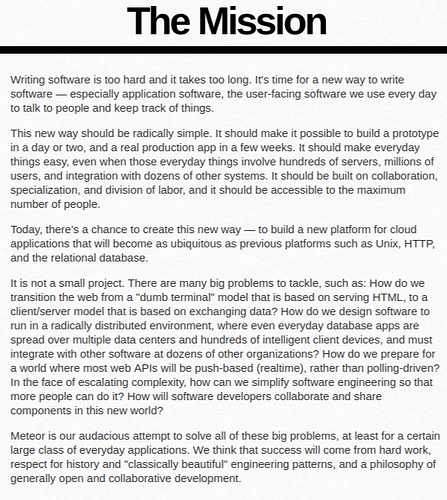I have mixed thoughts on this issue. It is a really nice feature, but only a few people are really able to utilize it securely. Even the Meteor Guide advises from using it. If the official recommendation is against it then it makes little sense to keep it in the system. But at the same time, I’m considering prototyping where it finds great use.
From my experience in react right now I prefer using methods, but that is just one possible implementation and I’m not entirely consistent.
As @copleykj pointed out there was always more of a push to not use it rather than educate. Wouldn’t then be better changing the default behavior to the safe way be preferred than abolishing this approach altogether? It is all nice and good to tell people to educate themselves about the security issue, but given how constantly even large companies that have dedicated security teams are leaking confidential data, I find that to be a losing battle and hence prefer secure by design and only touch it if you know what you are doing.
Either way, I’m afraid we will have to have some sort of breakage here to solve this one way or other.


